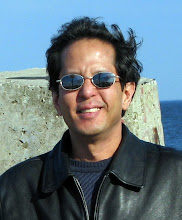Part 3 of the ENDABUSE Report deals with addict descriptions of the horrors of heroin cold turkey withdrawal and methadone detox. A medical doctor who evaluated and observed four patients treated with the ENDABUSE Procedure using Ibogaine and addicts explain the medical testing required prior to treatment to screen out those physically unfit.
Howard Lotsof then outlines the phases of experiences people treated with Ibogaine can expect:
1. Visualization Phase: lasting between 3 to 5 hours, this is a period of intense and rapid-fire playback of both symbolic and past experiences that appear on what's often been described as a "movie screen" in the viewer's mind. It sounds similar to Near Death Experiences where people describe their entire life flashing by them in seconds. These past experiences are typically not judged subjectively as either positive or negative but with a remarkable degree of objective and unemotional observation.
2. Cognitive Evaluation Phase: During this phase of self evaluation that lasts 6 to 8 hours, often the key events, relationships, emotions, and motivations that have resulted in someone's addiction are realized quite clearly by the patient, minus their emotional baggage. As a result, conscious decisions are made by the patient that reinforce their behavioral modification in breaking addictive patterns in their lives. As social worker Barbara Judd observed (she appears later in this series and formed a support group with several patients who were treated using the ENDABUSE Procedure), one treatment with Ibogaine seems to accomplish breakthroughs and self-awareness that typically takes years to accomplish using conventional psychotherapy.
3. Residual Stimulation Phase: This phase lasts up to 48 hours and is the most uncomfortable and difficult period patients endure. It follows the intense visual experiences and the decision-making phases. During this phase a patient cannot stand up on their own due to ataxia, they feel exhausted and overwhelmed but cannot rest or fall asleep. Often, patients now realize their cravings have disappeared, they're not "dope sick" -- perhaps for the first time in years. It's usually a very positive and welcome feeling, reinforcing the reason they sought treatment to begin with.
At the end of this phase, patients typically fall alseep for only a few hours and awaken completely refreshed, often hungry after their 30+ hour ordeal. Many who were smokers don't want a cigarette when they finally eat and have a cup of coffee. Most are amazed by their newfound sobriety. Food tastes delicious and the air entering their lungs feels good, they feel whole.
For observers of these patients, they can see a remarkable change in them, like night and day. No wonder so many former addicts want to help others through their Ibogaine treatment. It's an affirmation of life, of light versus dark, of hope versus self-defeat, of one's own glorious potential as a human being on this planet within this universe.
In the final section of Part 3 the addicts present their own experiences during their Ibogaine treatment, affirming Howard's claims and themselves.
Part 4 (coming soon) will have more testimonials. Thank you for staying tuned!






No comments:
Post a Comment